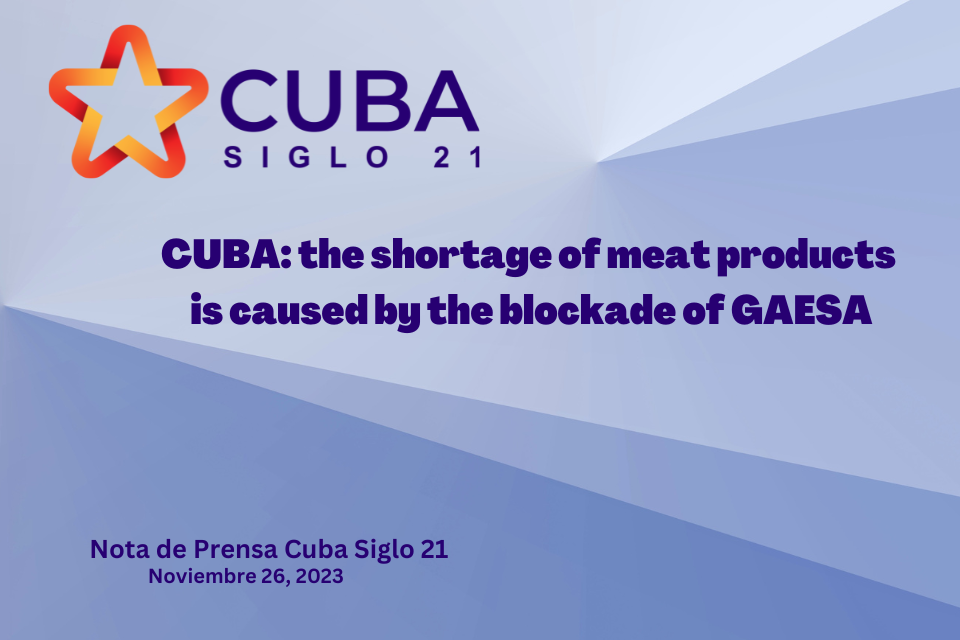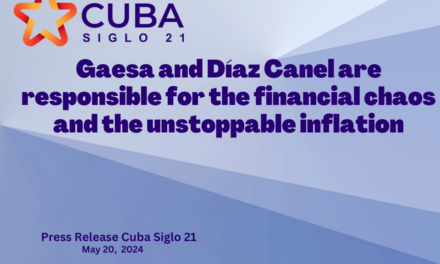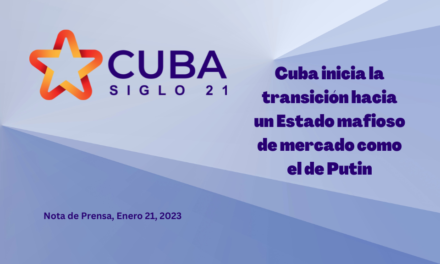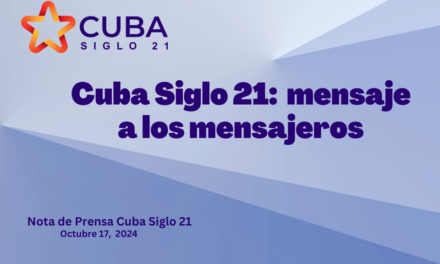Descargar informe completo en PDF (Español)
Download complete Report in PFD (English)
Ver resumen en español
See Summary in English
(Nov 26, 2023) The true reasons behind the current food crisis in general and of meat products in particular are exposed in the Dossier Cuba 21 No. 13 “GAESA prefers to import meat than produce it” written by economist Emilio Morales, president of Havana Consulting Group and vice president of Cuba Siglo 21 think tank.
When in 2010 the Cuban government announced a process of reforms to transform the economy, one of the fundamental goals was to stimulate national agricultural production to reduce the import of food, whose value at that time exceeded 2 billion dollars annually. These imports represented 80% of the total food consumed in the country.
The figures of the report demonstrate the failure of the above mentioned reform process. In 2022 the country had to import 90.2% of the chicken consumed. The monetary value of these chicken meat imports increased by 131.20%, going from 291.06 million dollars in 2010 to 672.96 million dollars in 2022.
A decade after the beginning of the reforms, with the entry of MSMEs (Medium, Small, and Micro Enterprises) in the island’s economy landscape, they have not generated an increase in production in Cuban agriculture. The new MSMEs created are mostly focused on the import of products and their resale within the domestic market, not on generating a larger output in domestic agricultural production.
MSMEs are not going to solve food production, nor is GAESA interested in solving it because its privileged monopolistic position is based on the import and circulation of goods, not on production. For this reason, in the country there are no laws that prioritize and stimulate productive development. GAESA is not interested in having an internal competitor that takes away market share and marginalizes it from obtaining large profits.
The Dossier brings to light for the first time a revealing case that demonstrates how oligarchic interests block private food producers, whether farmers or foreign investors. The fate of the Cuban consumers of chicken meat was cast when, during the so-called Thaw under the Obama Administration, they denied permission to the very advantageous investment proposal worth more than $200 million dollars that was presented by the leading production company of chicken in Central America and the Caribbean. If it has been accepted in a short period of time the production of chicken meat would have satisfied national demand and generated a surplus for export to other markets. Buying frozen chicken from the “imperialist enemy” and selling them well above the cost of acquisition and transportation in the stores under GAESA’s monopoly control was simpler and more lucrative than producing it. Thus, GAESA preferred to continue its import business to avoid sharing profits with the investor and losing monopolistic control of the wholesale and retail chicken meat marketing channels in the country.
The streets would not have to be full of lines today to purchase imported chicken meat at exorbitant prices if the oligarchy had guided its decisions in the interest of national development and not by the profit rate of GAESA.
The burden that prevents the growth of agricultural production and the economy in general is the current governance regime on the island. The state control of the means of production, the centralization of the economy, centralized price controls, the Stalinist regime of forced sale to the state of livestock and most of the crops by private farmers (Acopio system), the lack of freedom of the peasants to directly export and import, as well as to independently seek investors as business partners.
In this context of permanent blockade of economic freedoms for genuine rural producers, it is not possible to solve the food problem. Nor is it possible to correct the system without political and civil rights. The author proposes that if private farmers were to be fully free their production output will impact the markets with abundant food at affordable prices.
Morales warns that current Cuban society is not “of the humble, by the humble, and for the humble” as the official propaganda claims. “We are actually facing a system of the oligarchy, by the oligarchy, and for the oligarchy.” An unproductive, parasitic oligarchy that blocks national development and turns its back to the basic needs of the population.
Descargar informe completo en PDF (Español)
Download complete Report in PFD (English)
Ver resumen en español
See Summary in English







